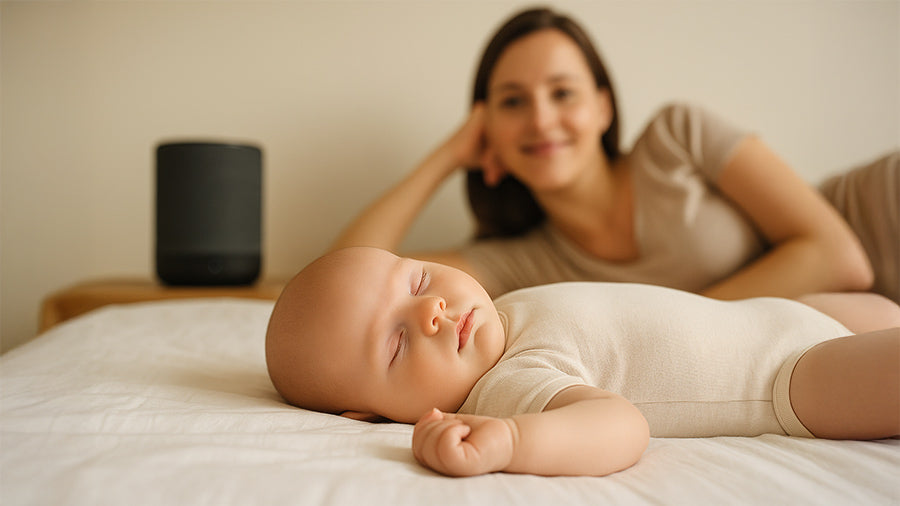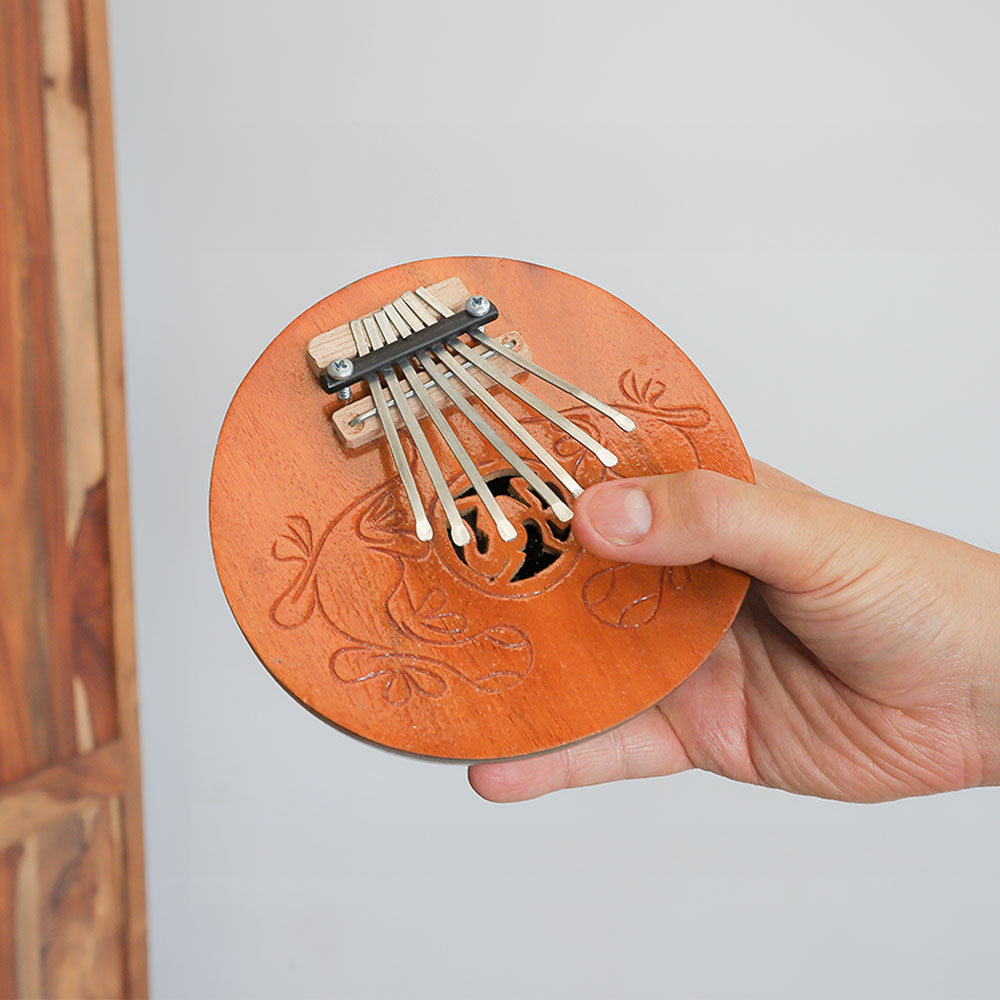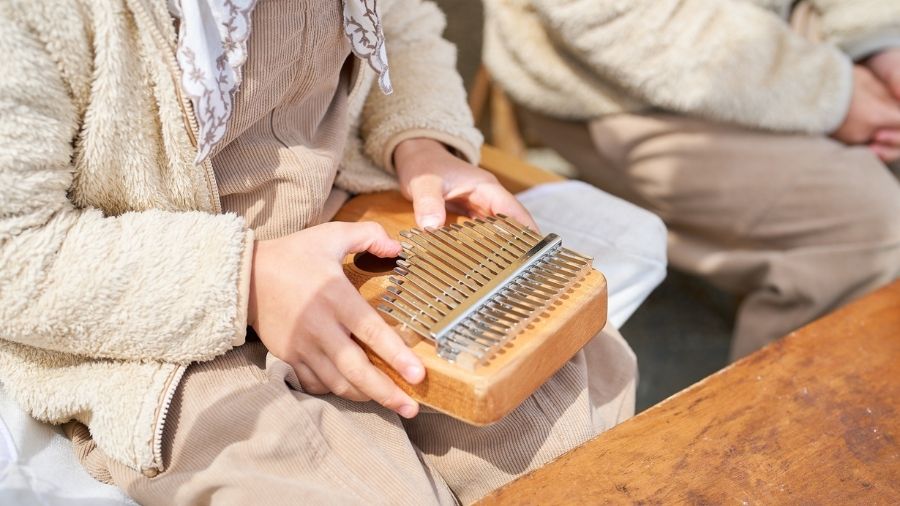Playing relaxing music helps soothe your baby, ease stress, and improve sleep quality by regulating breathing, heart rate, and lowering cortisol. Gentle melodies also strengthen emotional connection and brain development while creating a calm, nurturing atmosphere. When used as part of a bedtime routine, relaxing music drowns out background noise, signals rest time, and supports both your baby’s well-being and your own peace of mind.
The science behind relaxing music for babies
Research shows that relaxing music triggers the release of dopamine and oxytocin, chemicals that promote calm and connection. Its rhythmic patterns sync with a baby’s heartbeat and breathing, easing stress and improving focus. Gentle sounds also boost language and cognitive development by stimulating key brain regions. The best music for babies features soft instruments like harps or pianos, slow tempos, and soothing rhythms that mimic natural patterns. Avoid loud or fast music, and experiment with lullabies or nature sounds to find what relaxes your baby most.
10 Relaxing Songs Perfect for Babies
-
Brahms’ Lullaby (Wiegenlied) – timeless classic that soothes instantly
-
Twinkle, Twinkle, Little Star – gentle melody ideal for bedtime
-
Hush, Little Baby – repetitive phrasing promotes calm familiarity
-
Somewhere Over the Rainbow – soft and emotionally uplifting
-
You Are My Sunshine – comforting tune for bonding moments
-
Rock-a-Bye Baby – slow tempo ideal for sleep routines
-
Clair de Lune by Debussy – elegant piano piece for relaxation
-
Canon in D by Pachelbel – harmonious flow helps ease restlessness
-
Edelweiss from The Sound of Music – tender melody for quiet moments
-
Morning Mood by Grieg – light, peaceful instrumental for daytime calm
Play These Songs for Your Baby

If you play an instrument, sharing these melodies live can deepen the connection with your baby. You can find easy sheet music and beginner arrangements for these songs in the Learn section of our website or by visiting our digital songbook collection. Many are available for instruments like ukulele, kalimba, glockenspiel, and recorder, allowing you to create gentle, live performances your baby will love.
Best Practices for Using Relaxing Music with Your Baby
Play relaxing music daily to help your baby associate it with sleep and calm. Keep the volume low, use gentle lullabies or nature sounds, and observe your baby’s reactions to find what soothes them most. Combine the music with a peaceful setting—dim lighting, gentle rocking, or soft touch—to create a secure and familiar bedtime routine. Using calming scents like lavender or chamomile can enhance the atmosphere, helping your baby relax more deeply and sleep more soundly.
Babies can respond to music even before birth, but only gentle, slow-tempo sounds truly help them relax. Use calming music as a complement to touch, cuddling, or rocking to strengthen emotional bonds and support healthy development. Play for 20–30 minutes at a low volume, avoiding loud or fast tunes that may overstimulate. Thoughtful use of lullabies, nature sounds, or soft instrumentals can ease sleep, reduce stress, and build lasting calm habits for both baby and parent.







